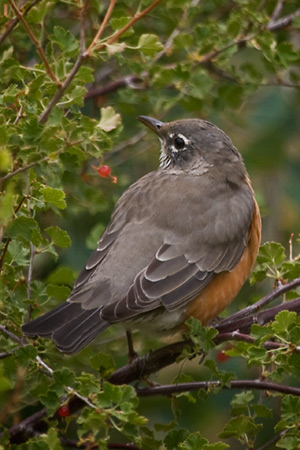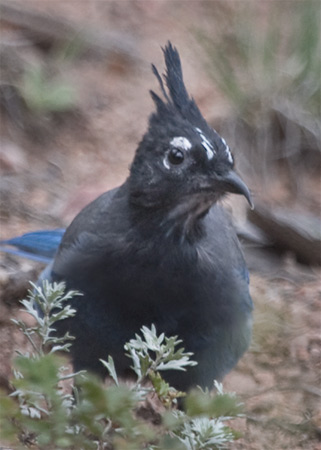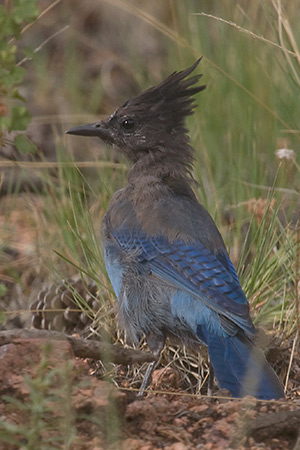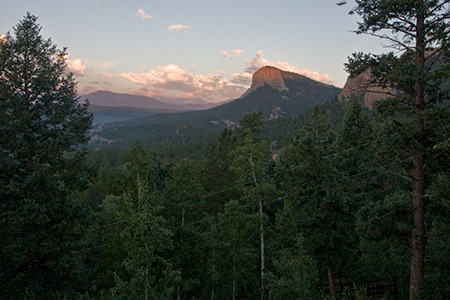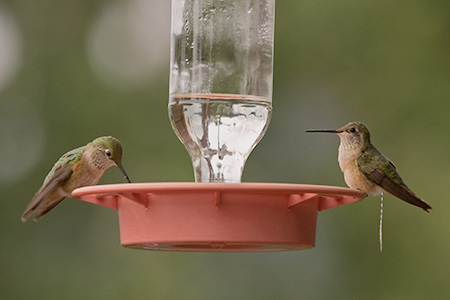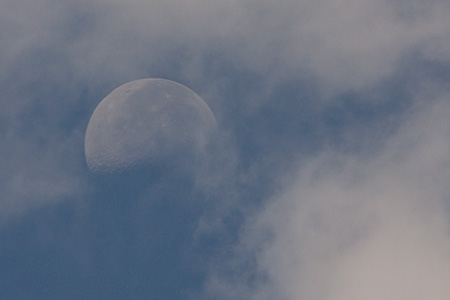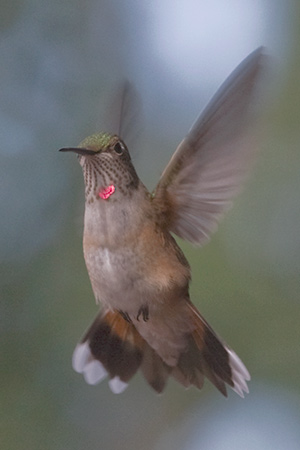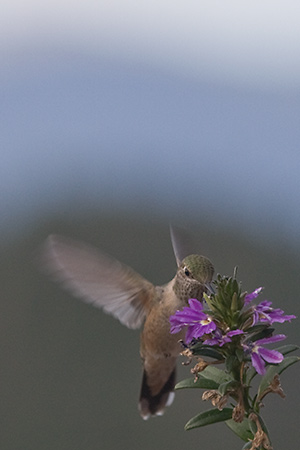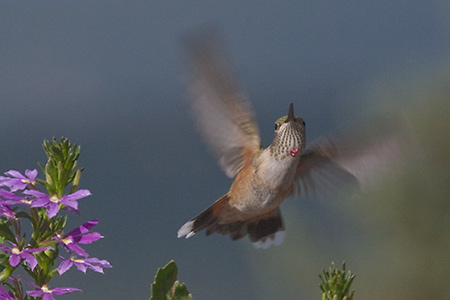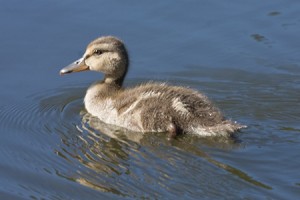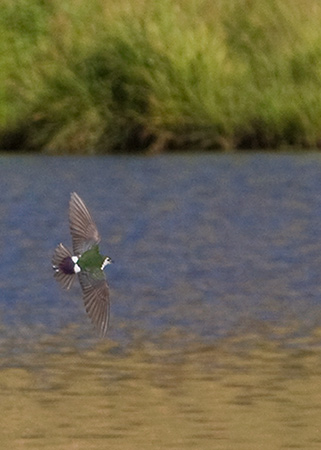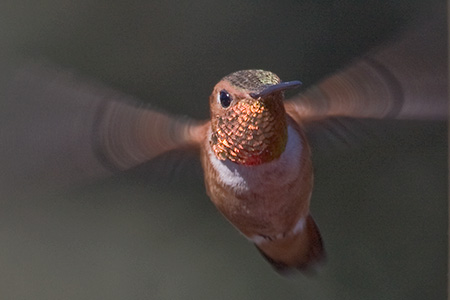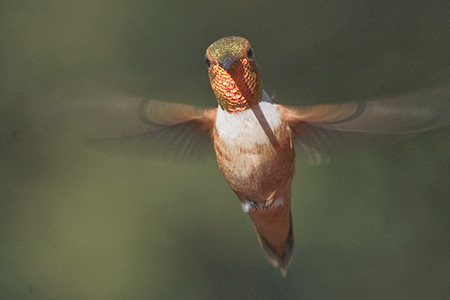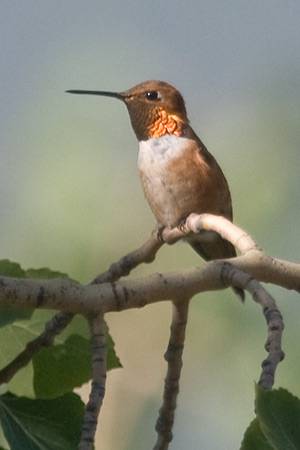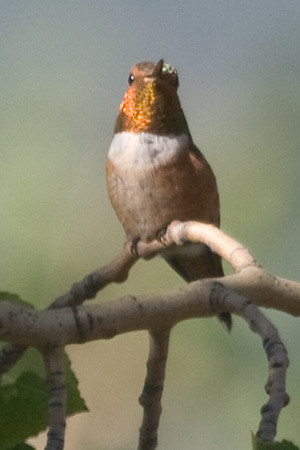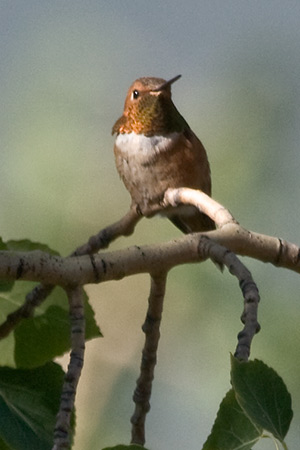The currants that grow around my home provide nourishment for hummingbirds when they flower in June and berries for other birds later in the summer. This image was captured on a foggy morning earlier this week.
molting stellers jays
I saw some bald blue jays over at Zen Birdfeeder recently. My stellers jays aren’t bald, but their head feathers aren’t very black anymore, and all the feathers look a bit rough. The birds hide in the grass as though they don’t wish to be seen in molt.
Lion’s Sunrise
I like to capture images of Lions Head when the first rays of morning sunlight are striking its top and clouds in the west are lit with early colorful light.
The challenge with this scene is losing the trees in the foreground to deep shadows. The light reaches Lions Head a long time before it illuminates the trees. The range from highlights to shadows make this image a good choice for multiple exposure composites.
The 9,000+ ft. Lions Head is part of the forbidden park, closed to the public while in the planning stages. I wait impatiently for its opening. When that happens I may have to start a blog just for park photos.
hummingbird sipping tall penstemon
don’t stand under the hummingbird feeder…
moon and clouds
While I wait for a hummingbird’s return to a feeder or wildflowers, I often look around for something else to focus on between the bird captures. I never tire of “shooting the moon” and was happy one day recently when I looked up and saw the moon framed in clouds.
Today, no moon or mountain views, the clouds are very low.
I’m happy I decided to skip this weekend’s festival. It’s no fun setting up a tent full of photography in the rain. The rest of the weekend is forecast to be the same. Rain and more rain, much needed and appreciated.
rainy day hummer
hummingbirds and fan flowers
Here’s how I capture hummingbirds sipping nectar with mountains and sky in the background making bands of blurred color:
Put the pot of flowers on the deck rail where there is a distant view of mountains. (This will work with other distant views or objects as well. Try to find a pleasing background with nothing between the flowers and the background.)
Use a telephoto and experiment with aperture settings until your flowers are sharp and background blurred.
A tripod helps to support a heavy lens while waiting to photograph.
To capture the hovering wings, use a fast shutter speed.
Optional: Add a little fill flash to lighten shadows or light up the iridescent feathers of the bird.
Lower Lake Ranch Ducklings
Swallow at Upper Lake
Catching insects above upper lake’s reflective surface, a violet-green swallow was my subject yesterday as I sat on a rock at water’s edge with the morning sun to my left.
Focusing manually as swallows and swifts darted and dipped over the lake, I watched their flight patterns through the lens. Then, every time I nailed the focus on a bird, I’d capture several images while panning with the bird.
rufous wings – hummingbird photography
A male rufous speeds back and forth from his guard post on an aspen branch to the feeder to defend against all incoming sippers.
Being the dominate rufous at my house would not be so difficult, but feeders on every side of the house make defending from a single branch impossible.
Watching all the feeders throughout the day, I see sippers I might think were being denied if I watched only watch one feeder. Broadtails are still about, but rufous attempts to rule.
Capturing perfectly sharp stills of hovering hummingbirds’ wings was a bit of an obsession for me in the 2005 – 2006 hummingbird seasons here in Consworld. Now, as I continue to experiment with both natural light and flash hummingbird photography, I’m favoring the blurred wing images over the sharper ones.
Even with the bill shadow cast on the bird by the midday sun, I like this photo, but might remove the shadow before printing.
Rufous days of summer
Middle of July brings the rufous hummingbird, already migrating south. Rufous only visits my area on the southbound migration. The northbound route is much farther west.
This yearly visit changes the behavior of the broadtails who have been feeding and nesting here
since late April. As the rufous charge in and seize control of July flowers and feeders,
the broatails must sneak to the feeders and flowers for a quick sip before a guarding rufous
chases them away.
Smaller and faster than the broadtails, rufous are expert flyers and very agressive. It is hard to get hovering photos of either species at my place right now with all the quick sipping and high speed fleeing and pursuing going on around here.
However, I confess I haven’t put much effort into photographing the hummingbirds and my normal nature subjects for a few weeks.
A wonderful week long visit with family has kept me busy photographing people rather than birds and other nature subjects. I also spent a few hours this month photographing a wedding party as an assistant to a professional portrait and wedding photographer/friend and neighbor.
Dark afternoons have promised and sometimes delivered welcome rains this month. After the rains, I like to photograph summer wildflowers. But, I’ve been digging and pulling alien weeds after the rains (it’s easier then) and doing wildfire mitigation (cleaning up deadfall and dry plant material) around my home this month.
Now, I’ve made a promise to myself to spend more time in the coming weeks on my nature photography work and less time with people and house chores. A moose was sighted in an area close to my home recently. I’d love to photograph her if she’s still around.
Happy July!
Con
P.S. Another project on the table now is an Artist Co-op in a nearby town. This is something I’ve
wanted to do with area artists about for about three years. An opportunity is on the horizon, so we are meeting and researching. I’ll write more about this when (and if) we get to the planning stage.
